Shipping is temporarily suspended until Monday, July 7th to protect plant health. Click here to learn more.
Shipping is temporarily suspended until Monday, July 7th to protect plant health. Click here to learn more.
| Size | |
|---|---|
| Common Name | |
| Type | |
| Family | |
| Native? | |
| Zone | 5, 6, 7, 8 |
| Height Range (ft.) | 20 to 60 |
| Spread (ft.) | 20 to 35 |
| Bloom Time | |
| Foliage | Dark green needles in bundles of two, 3-5 inches long |
| Sun | |
| Water | |
| Maintenance | |
| Suggested Use | |
| Tolerate | |
| Attracts | |
| Growth Rate |
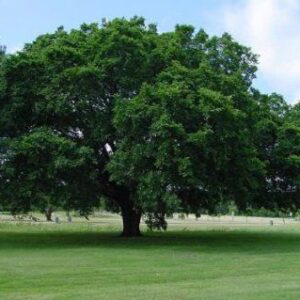
Black Pine is a rugged evergreen tree with dark green needles and salt tolerance, ideal for coastal plantings and specimen gardens.
$19.99
Please note: Sizes 1.5 Gallon and up can’t be shipped outside the counties of Nassau, Suffolk, and Queens.
Learn more about how the process works and how our plants are delivered.
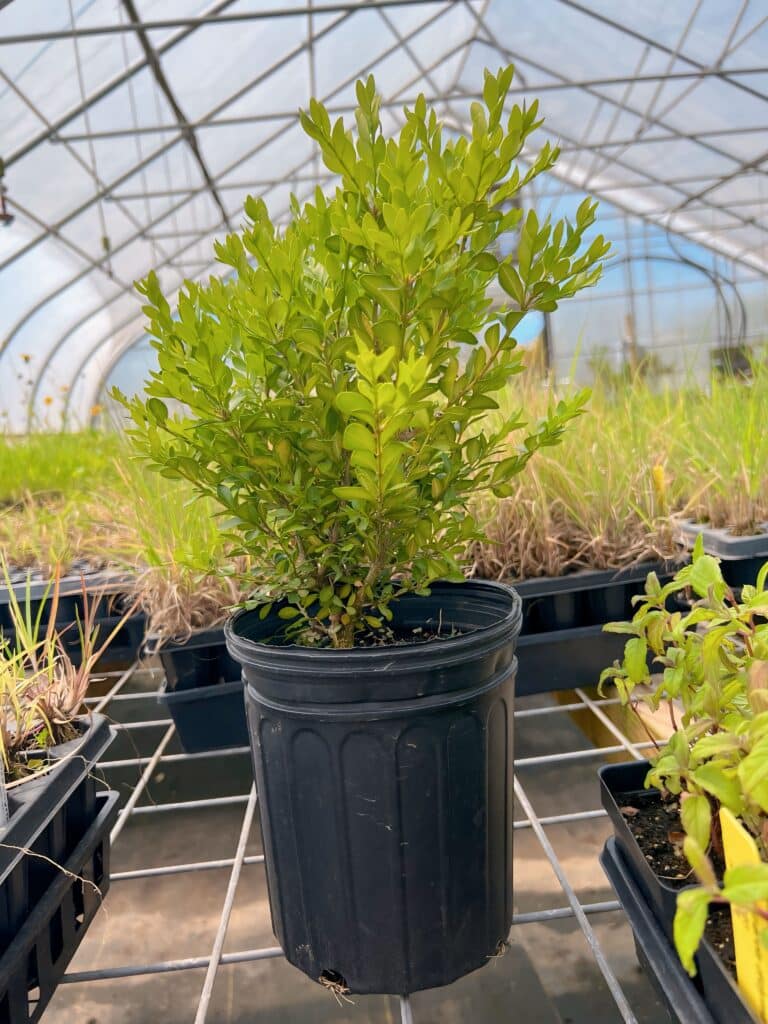
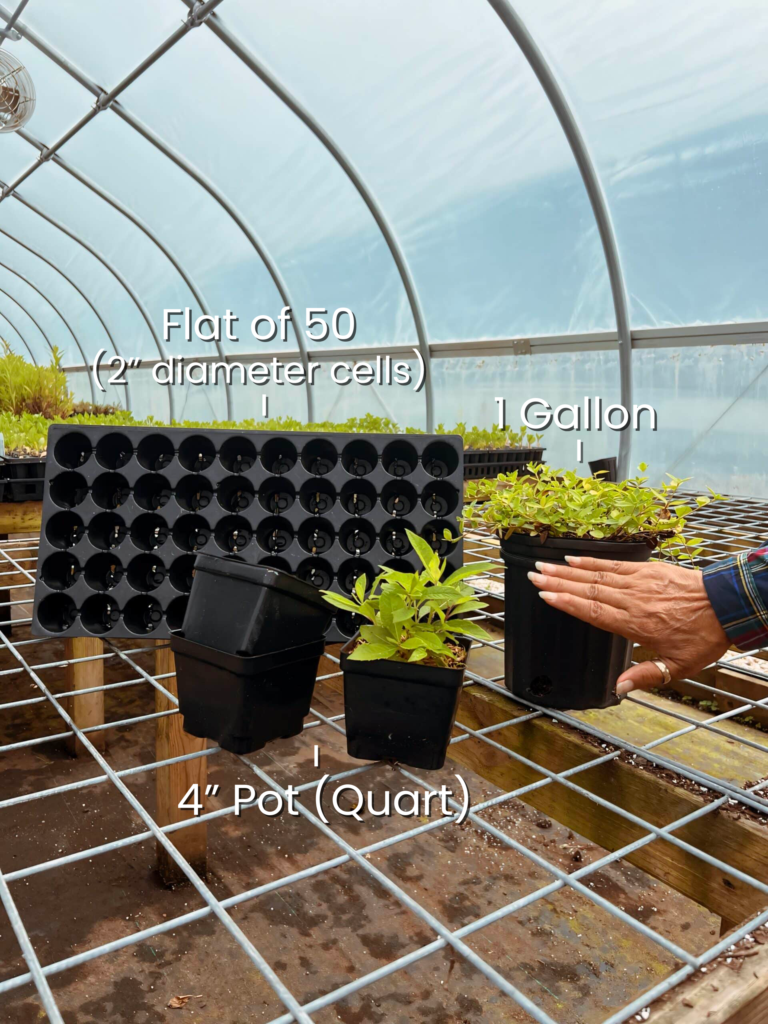
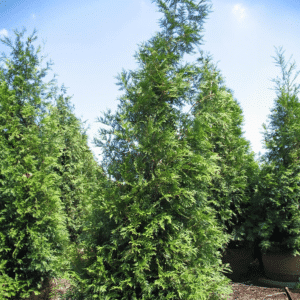
| Size | |
|---|---|
| Common Name | |
| Type | |
| Family | |
| Native? | |
| Zone | 5, 6, 7, 8 |
| Height Range (ft.) | 20 to 60 |
| Spread (ft.) | 20 to 35 |
| Bloom Time | |
| Foliage | Dark green needles in bundles of two, 3-5 inches long |
| Sun | |
| Water | |
| Maintenance | |
| Suggested Use | |
| Tolerate | |
| Attracts | |
| Growth Rate |
Pinus thunbergii, commonly known as Black Pine or Japanese Black Pine, is a fast-growing evergreen conifer native to coastal areas of Japan and Korea. It’s widely valued in ornamental landscapes for its rugged, windswept form, dark green needles, and tolerance to harsh conditions such as salt spray and drought. Growing 20 to 60 feet tall with an irregular, open habit, Black Pine is often used as a specimen tree, bonsai subject, or for coastal plantings.
/5
Total reviews
|
|
Persons recommended this product
Anonymous
Shopper
check_circle Verified
Shop owner replied
Was this helpful
Anonymous
Shopper
check_circle Verified
Shop owner replied
Was this helpful
Your feedback helps us improve our service.
There are no reviews yet.
Be the first to review “ ”
Please log in to submit a review.
Only logged in customers who have purchased this product may leave a review
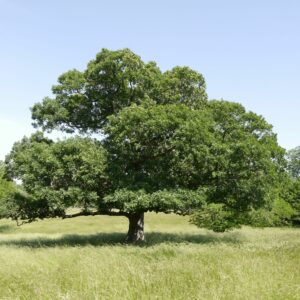
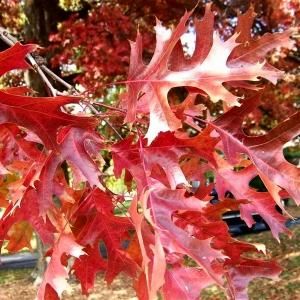
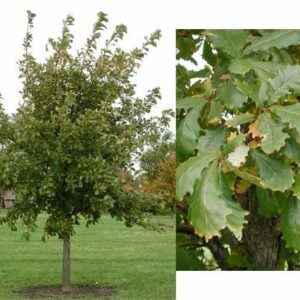

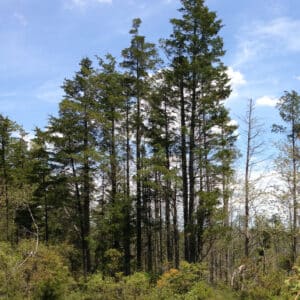

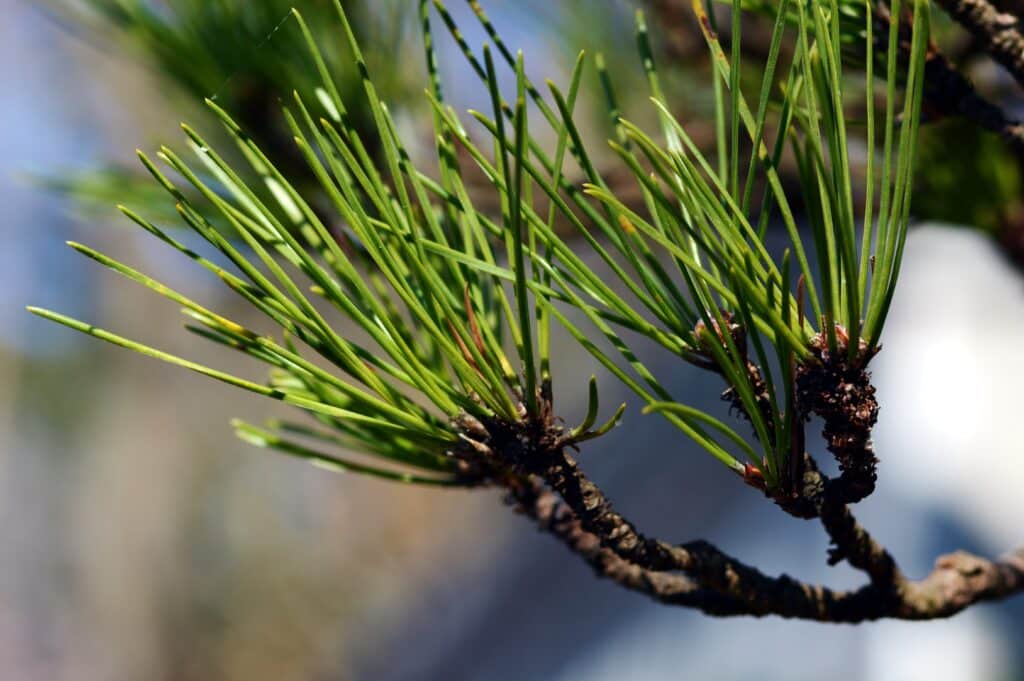
Japanese Black Pine is a medium to large evergreen conifer, typically growing 20 to 60 feet tall with a spread of 20 to 40 feet. In cultivation, especially when pruned or bonsai-trained, it often remains smaller and more compact. It has an irregular, picturesque form, often with a flattened crown as it matures.
Japanese Black Pine thrives in full sun, requiring at least 6 hours of direct sunlight daily. It prefers well-drained, sandy soils and is highly tolerant of poor soils, drought, wind, and salt spray, making it an excellent choice for coastal gardens or urban settings.
Yes! Japanese Black Pine is especially salt-tolerant and thrives in coastal environments. Its tolerance to wind and salt spray makes it ideal for dune stabilization and windbreaks along the coast. It’s commonly used in beach landscapes and coastal barrier plantings.
Japanese Black Pine can be low-maintenance, but it’s often pruned for shape in ornamental gardens and bonsai. Regular candle pruning encourages dense branching and compact growth. It’s also important to remove dead or diseased branches to maintain tree health.
While hardy and adaptable, Japanese Black Pine can be susceptible to pine wilt disease, caused by pinewood nematodes, and insect pests like pine sawflies and scale insects. Planting in well-drained soils, ensuring good air circulation, and maintaining overall plant health can help reduce the risk of problems.
Our gift cards make it easy to share the beauty of plants, flowers, and all things green. Whether for a special occasion or just because, give the gift of choice and let them select their favorites to create a garden they’ll cherish.
BUYING HIGH QUALITY PLANTS HAS NEVER BEEN EASIER
Our plants are easy to order, plant, and enjoy! Bringing pollinators to your property improves vegetable yields – Feed the bees!
Sign up for our email list!
Copyright © 2025 Bumbee’s | Web design and SEO by Searles Graphics
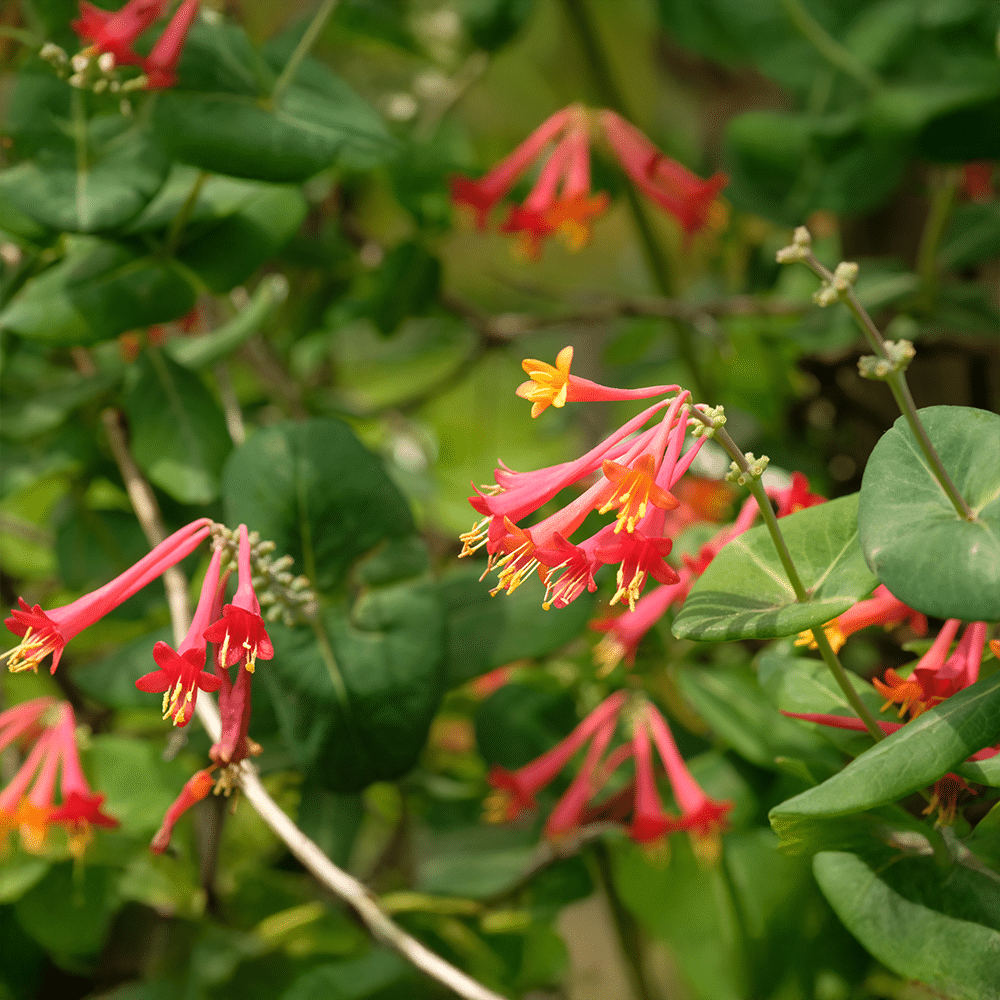
We truly hate to pause things, but with the extreme heat and the holiday weekend, we’ve had to suspend all shipping until Monday, July 7th.
Right now, it’s just too hot for the plants to survive more than 48 hours in a shipping box, and we’d never want to send them out in conditions that could harm them.
We’re really sorry for the delay and any inconvenience this may cause. Thank you for your patience and for caring as much about these plants as we do.